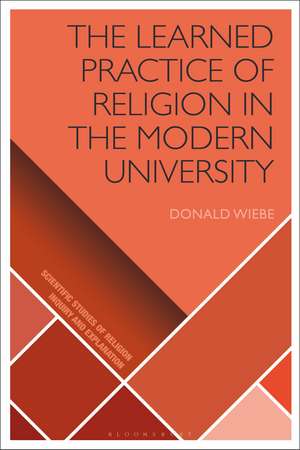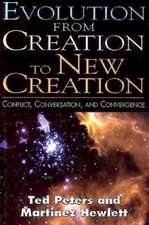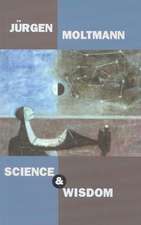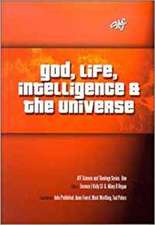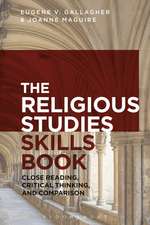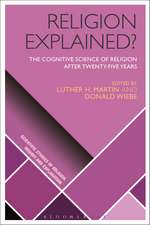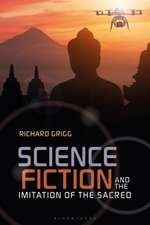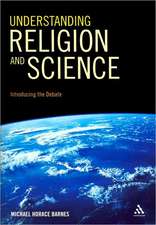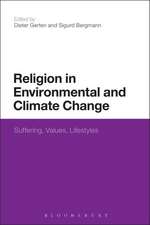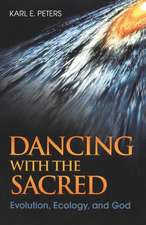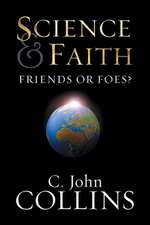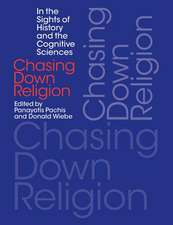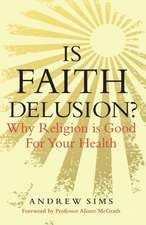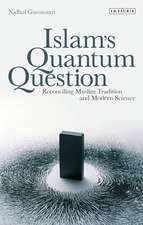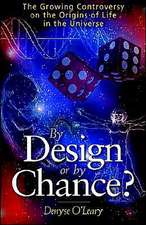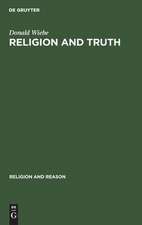The Learned Practice of Religion in the Modern University: Scientific Studies of Religion: Inquiry and Explanation
Autor Donald Wiebeen Limba Engleză Paperback – 19 mai 2021
| Toate formatele și edițiile | Preț | Express |
|---|---|---|
| Paperback (1) | 217.91 lei 6-8 săpt. | |
| Bloomsbury Publishing – 19 mai 2021 | 217.91 lei 6-8 săpt. | |
| Hardback (1) | 657.05 lei 6-8 săpt. | |
| Bloomsbury Publishing – 13 noi 2019 | 657.05 lei 6-8 săpt. |
Din seria Scientific Studies of Religion: Inquiry and Explanation
- 22%
 Preț: 149.02 lei
Preț: 149.02 lei - 23%
 Preț: 192.55 lei
Preț: 192.55 lei - 30%
 Preț: 511.64 lei
Preț: 511.64 lei - 23%
 Preț: 191.75 lei
Preț: 191.75 lei - 21%
 Preț: 218.65 lei
Preț: 218.65 lei - 21%
 Preț: 218.09 lei
Preț: 218.09 lei - 23%
 Preț: 229.41 lei
Preț: 229.41 lei - 13%
 Preț: 194.06 lei
Preț: 194.06 lei - 24%
 Preț: 190.16 lei
Preț: 190.16 lei - 13%
 Preț: 237.57 lei
Preț: 237.57 lei - 24%
 Preț: 190.06 lei
Preț: 190.06 lei - 22%
 Preț: 231.63 lei
Preț: 231.63 lei - 24%
 Preț: 190.06 lei
Preț: 190.06 lei - 23%
 Preț: 191.67 lei
Preț: 191.67 lei - 23%
 Preț: 191.38 lei
Preț: 191.38 lei - 22%
 Preț: 238.11 lei
Preț: 238.11 lei - 30%
 Preț: 596.81 lei
Preț: 596.81 lei - 22%
 Preț: 225.12 lei
Preț: 225.12 lei - 21%
 Preț: 217.82 lei
Preț: 217.82 lei - 22%
 Preț: 237.93 lei
Preț: 237.93 lei - 22%
 Preț: 256.20 lei
Preț: 256.20 lei - 23%
 Preț: 191.38 lei
Preț: 191.38 lei - 23%
 Preț: 255.66 lei
Preț: 255.66 lei - 30%
 Preț: 512.37 lei
Preț: 512.37 lei - 13%
 Preț: 257.03 lei
Preț: 257.03 lei - 30%
 Preț: 511.07 lei
Preț: 511.07 lei - 30%
 Preț: 717.79 lei
Preț: 717.79 lei
Preț: 217.91 lei
Preț vechi: 275.02 lei
-21% Nou
Puncte Express: 327
Preț estimativ în valută:
41.70€ • 43.38$ • 34.43£
41.70€ • 43.38$ • 34.43£
Carte tipărită la comandă
Livrare economică 14-28 aprilie
Preluare comenzi: 021 569.72.76
Specificații
ISBN-13: 9781350257955
ISBN-10: 1350257958
Pagini: 256
Dimensiuni: 156 x 234 mm
Greutate: 0.36 kg
Editura: Bloomsbury Publishing
Colecția Bloomsbury Academic
Seria Scientific Studies of Religion: Inquiry and Explanation
Locul publicării:London, United Kingdom
ISBN-10: 1350257958
Pagini: 256
Dimensiuni: 156 x 234 mm
Greutate: 0.36 kg
Editura: Bloomsbury Publishing
Colecția Bloomsbury Academic
Seria Scientific Studies of Religion: Inquiry and Explanation
Locul publicării:London, United Kingdom
Caracteristici
Highlights the ambiguities in the use of the terms "the academic study of religion" and "religious studies" in relation to the place of religion in the curriculum of the modern university
Notă biografică
Donald Wiebe is Professor of Philosophy at Trinity College, University of Toronto, Canada.
Cuprins
ContentsAcknowledgmentsList of AbbreviationsIntroductionPart One: Disenchantment with Science in the Academic Study of Religion1 Including Religion in "Religious Studies"2 Secular Theology Is Still Theology3 Scientific Study of Religion and Its Cultured Despisers4 Apologetic Modes of Theorizing5 The Learned Practice of Religion in Canada6 Affirming Religion in the History of Religious StudiesPart Two: Evidencing the Rejection of the Modern Epistemic Traditionin the Study of Religion7 Religion Thin and Thick8 Incurably Religious: The AAR at Fifty-Five9 American Influence on the Shape of Things to Come10 Religious Studies in North America during the Cold War11 The Desire for Moral ValidationPart Three: In Search of a Culture-Transcending Knowledge of Religionsand Religion12 Removing Religion from the Study of Religion: A Nineteenth-CenturyInnovation13 Modernism and the Study of Religion14 Rejecting a "Science-Lite" Study of Religion in the Modern UniversityConclusion: Need Religious Studies Remain "Conspicuously Unscientific"?Epilogue: Tending to Werblowsky's ConcernsNotesReferencesIndex
Recenzii
Wiebe has done it again! In this collection he offers a framework for what should be the appropriate study of religion in the modern university. Providing a refreshing antidote to the irenic and the interfaith, Wiebe maintains that the study of religion must be a scientific endeavor unencumbered by religious or moralizing agendas. A science of religion is about knowledge pure and simple, and not about slogans that invoke the betterment of individuals and society.
Donald Wiebe's work rightfully remains at the center of debates on the study of religion's shape and its limits, making it required reading for anyone concerned with how "the study of" and "the practice of" ought to relate to one another; the unrelenting rigor of his advocacy for a truly scientific study of religion keeps the field honest by preventing readers from ever forgetting what was and remains at stake when scholars study religion.
Donald Wiebe's work rightfully remains at the center of debates on the study of religion's shape and its limits, making it required reading for anyone concerned with how "the study of" and "the practice of" ought to relate to one another; the unrelenting rigor of his advocacy for a truly scientific study of religion keeps the field honest by preventing readers from ever forgetting what was and remains at stake when scholars study religion.
